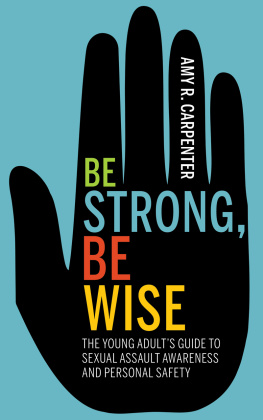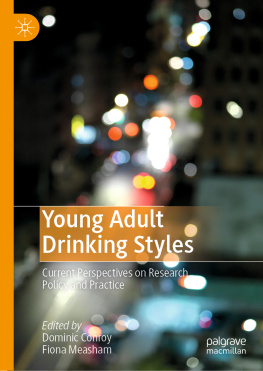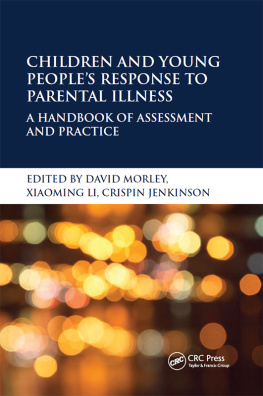
Children and Young People as Knowledge Producers
Despite the widespread promotion of childrens voices by activists and policy-makers over the last decade, the potential for young peoples knowledge to impact on adult agendas and policy arenas is by no means a certainty. This book presents critiques of participation in settings where young people are the centre of attention. The complexities and power-dynamics of youth-adult relationships are observed and analysed in a wide diversity of study environments, from Hull to Sao Paulo, rural Lesotho to Ghana, using varied methods and over different time frames, but with a strong focus throughout on context, practice, impacts and associated ethical considerations. The central concern of the book is not whether young people can produce better knowledge than adults, but rather how to better understand the different types of knowledge which emerge from diverse actors within different generations, in order to ensure that the maximum benefits accrue to children and young people, with and for whom, the research is conducted.
This book was originally published as a special issue of Childrens Geographies.
Gina Porter is a Senior Research Fellow in the Department of Anthropology at Durham University, UK. She has been conducting research into participatory methodologies for many years, principally in sub-Saharan Africa. Her recent work has focused on the co-production of knowledge with children and young people in Ghana, Malawi and South Africa, and with older people in Tanzania. She is currently leading an interdisciplinary research study on the impact of mobile phones on young peoples lives in Ghana, Malawi and South Africa.
Janet Townsend is a Visiting Fellow at the School of Geography, Politics and Sociology, Newcastle University, UK. She is a feminist who has engaged in participatory research with poor women in low income countries. She is concerned with issues of poverty, power, self-empowerment and the (dangerous) power of academics, particularly those in prosperous countries.
Kate Hampshire is a Reader in the Department of Anthropology, a Lecturer in Health and Human Sciences and a Fellow of the Wolfson Research Institute for Health and Wellbeing at Durham University, UK. She works on children and young peoples health and wellbeing in various settings, using participatory research approaches. Her recent research includes (with Gina Porter) co-production of knowledge with young people in Ghana, Malawi and South Africa, childrens use of medicines in Ghana, and social wellbeing among school children in Northeast England.
First published 2014
by Routledge
2 Park Square, Milton Park, Abingdon, Oxon, OX14 4RN, UK
and by Routledge
711 Third Avenue, New York, NY 10017, USA
Routledge is an imprint of the Taylor & Francis Group, an informa business
2014 Taylor & Francis
All rights reserved. No part of this book may be reprinted or reproduced or utilised in any form or by any electronic, mechanical, or other means, now known or hereafter invented, including photocopying and recording, or in any information storage or retrieval system, without permission in writing from the publishers.
Trademark notice: Product or corporate names may be trademarks or registered trademarks, and are used only for identification and explanation without intent to infringe.
British Library Cataloguing in Publication Data
A catalogue record for this book is available from the British Library
ISBN 13: 978-0-415-74065-4
Typeset in Times New Roman
by Taylor & Francis Books
Publishers Note
The publisher accepts responsibility for any inconsistencies that may have arisen during the conversion of this book from journal articles to book chapters, namely the possible inclusion of journal terminology.
Disclaimer
Every effort has been made to contact copyright holders for their permission to reprint material in this book. The publishers would be grateful to hear from any copyright holder who is not here acknowledged and will undertake to rectify any errors or omissions in future editions of this book.
Table of Contents
Gina Porter, Janet Townsend and Kate Hampshire
Marion Walker, Rebecca Whittle, Will Medd, Kate Burningham, Jo Moran-Ellis and Sue Tapsell
Matej Blazek and Petra Hraov
Nicola Ansell, Elsbeth Robson, Flora Hajdu and Lorraine van Blerk
Liz Todd
Victoria Jupp Kina
Kate Hampshire, Gina Porter, Samuel Owusu, Simon Mariwah, Albert Abane, Elsbeth Robson, Alister Munthali, Mac Mashiri, Goodhope Maponya and Michael Bourdillon
Guide
The chapters in this book were originally published in Childrens Geographies, volume 10, issue 2 (May 2012). When citing this material, please use the original page numbering for each article, as follows:
Introduction
- Editorial: Children and young people as producers of knowledge
- Gina Porter, Janet Townsend and Kate Hampshire
- Childrens Geographies, volume 10, issue 2 (May 2012)
- pp. 131134
Chapter 1
- It came up to here: learning from childrens flood narratives
- Marion Walker, Rebecca Whittle, Will Medd, Kate Burningham, Jo Moran-Ellis and Sue Tapsell
- Childrens Geographies, volume 10, issue 2 (May 2012)
- pp. 135150
Chapter 2
- Emerging relationships and diverse motivations and benefits in participatory video with young people
- Matej Blazek and Petra Hraov
- Childrens Geographies, volume 10, issue 2 (May 2012)
- pp. 151168
Chapter 3
- Learning from young people about their lives: using participatory methods to research the impacts of AIDS in southern Africa
- Nicola Ansell, Elsbeth Robson, Flora Hajdu and Lorraine van Blerk
- Childrens Geographies, volume 10, issue 2 (May 2012)
- pp. 169186
Chapter 4
- Critical dialogue, critical methodology: bridging the research gap to young peoples participation in evaluating childrens services
- Liz Todd
- Childrens Geographies, volume 10, issue 2 (May 2012)
- pp. 187200
Chapter 5
- What we say and what we do: reflexivity, emotions and power in children and young peoples participation
- Victoria Jupp Kina
- Childrens Geographies, volume 10, issue 2 (May 2012)
- pp. 201218
Chapter 6
- Taking the long view: temporal considerations in the ethics of childrens research activity and knowledge production
- Kate Hampshire, Gina Porter, Samuel Owusu, Simon Mariwah, Albert Abane, Elsbeth Robson, Alister Munthali, Mac Mashiri, Goodhope Maponya and Michael Bourdillon
- Childrens Geographies, volume 10, issue 2 (May 2012)
- pp. 219232
Please direct any queries you may have about the citations to
Albert Abane, Department of Geography and Regional Planning, University of Cape Coast, Cape Coast, Ghana
Nicola Ansell, Centre for Human Geography, Brunel University, London, UK
Matej Blazek, School of the Environment, University of Dundee, Dundee, UK





